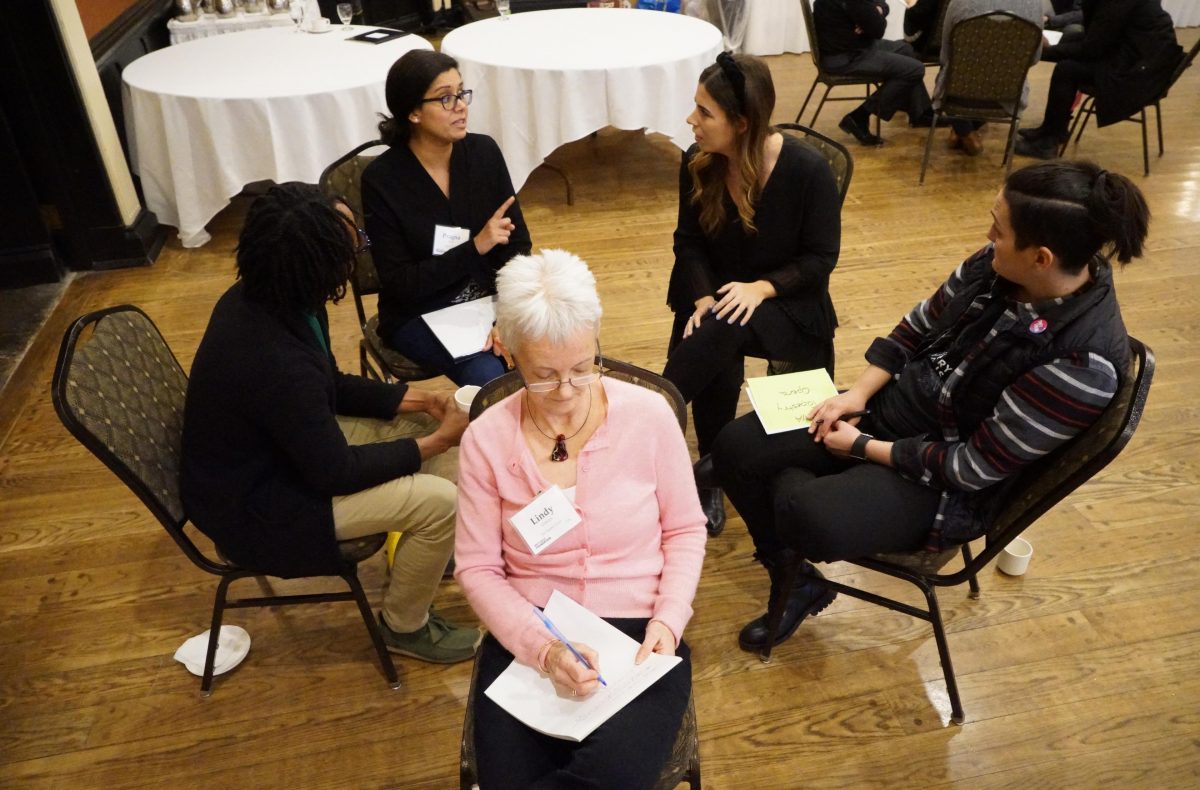In early February, Theatre Direct, Tapestry Opera, The Theatre Centre, and the National Ballet of Canada gathered at the Old Mill Toronto for an intensive five-day retreat. The four Toronto-based performing arts companies are participants in Staging Change, the Foundation’s multi-year strategic initiative in the performing arts. It was a demanding but energizing week full of hard turns and new discoveries, bolstered by profound personal, organizational, and cohort learning.
All four companies are participants in Stage 3 of the four-stage initiative. The first step of the retreat is for each organization to reaffirm, modify, or, in some cases, completely re-imagine their complex challenge (those that have no single or known solutions).
The next step is to build up to three experiments, or prototypes, that will allow each organization to test some emerging responses to their newly evolved complex challenge. The multiple perspectives that each innovation team member, including staff, board members, artists, and community members, brings to the design process are crucial to its success. The prototypes will be implemented over the next six months with $25,000 grants underwritten by the Foundation.
One of the highlights of the retreat was a peer-to-peer exchange on day two. Working in small cross-organizational teams, a member from one company posed a burning question to a small group of colleagues from the other three organizations who offered insightful feedback. Once company teams re-convened, they were able to hear a diversity of interesting and surprising new perspectives. These ranged from the suggestion that the question was not as complex as the company had imagined, to broader community insights that the company had yet to consider. This exercise was a powerful way to kick-start the next evolution of the company’s prototype design, a key component of the iterative process.
In Stage 4, which begins in the fall, participating organizations will receive $150,000 over two years to amplify the most promising responses to their complex challenges as they work on increasing the value they bring to their communities.
______________
Staging Change is delivered with the support of EmcArts, a North-Carolina based social enterprise for adaptive learning and innovation. As the participating companies make their way through the program’s four stages, they identify and test adaptive responses to complex challenges. The process asks participants to confront their assumptions, test new ideas, and iterate based on the emergent learning.



